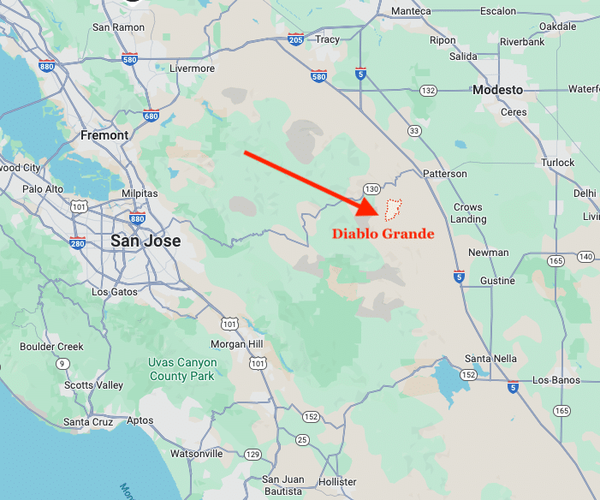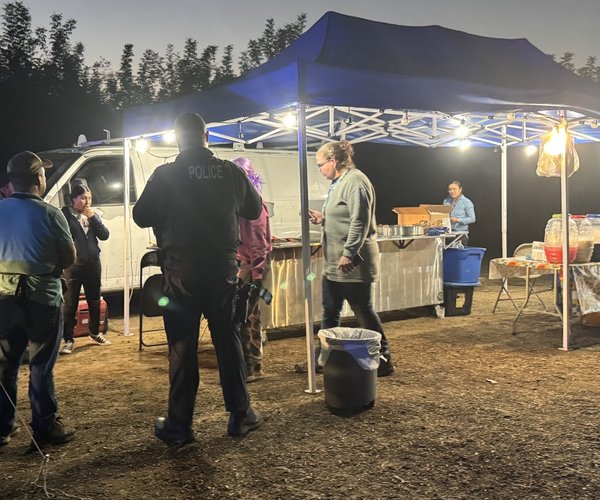BY VIVIENNE AGUILAR
CV Journalism Collaborative
Local nonprofit radio news stations are reimagining how they will serve Valley listeners, in the aftermath of federal lawmakers cutting $1.1 billion to public media.
In July the Corporation of Public Broadcasting (CPB), which houses resources, delivers grants, lobbies on behalf and and enforces transparency of public radio and television stations across the country, lost the vast majority of Republican-lawmaker support for the federal funding that keeps it going. No Democratic lawmaker in either chamber voted for the funding cuts.
The votes came after the Trump administration announced the cuts in an executive order on May 1, titled “Ending taxpayer subsidization of media.” The administration characterized public funding for National Public Radio, Public Broadcasting Station and CPB to be “unnecessary and outdated” in the current media landscape.
Without the money it was promised, CPB announced that by the end of September the majority of its employees will be laid off. The organization will officially close its doors at the end of the year.
This leaves many questions unanswered for stations nationwide, including how they will handle day-to-day operations, like paying for music licenses and distribution systems that keep channels on air 24-hours a day.
The main public broadcast media stations in the greater Modesto-Merced area are Capital Public Radio (KUOP 91.3-FM) out of Sacramento and Radio Bilingüe (KMPO 88.7-FM) out of Clovis. On a good day, those living just outside of Livingston can get Valley Public Radio (KVPR 89.3-FM) out of Fresno. All three have served the region for more than 40 years each.
Both CapRadio and KVPR are member stations of the National Public Radio (NPR) network, and have been able to clarify to listeners that while federal funding is important, local radio stations like them are truly kept afloat by community partners and donors.
Bottom of Form
KUOP reaches 45,000 weekly listeners between Stanislaus and San Joaquin counties.
Many listeners have rallied in support of those stations since the federal funding cuts. That has given station leaders hope they can sustain themselves fiscally without the CPB dollars.
KVPR General Manager Joe Moore is cautiously optimistic the station will make up the roughly $175,000 it is losing annually from the corporation’s demise. But the future still remains uncertain.
“People are paying attention to it right now, but 12 months from now, will it still be as front of mind for listeners and community members?” Moore said.
The more prominent regional station, CapRadio is in better shape as it has become fully community supported in the 18 months following a CPB audit. That resulted in the station having to learn how to live without federal funds.
Without oversight from CPB’s Office of the Inspector General, local stations will no longer have third party oversight to hold them accountable for financial inconsistencies and mismanagement of funds.
Representatives from both stations said listeners have responded to the repeated calls to action broadcast during programming breaks. Research shows avid listeners of NPR-affiliated stations are more likely to have gone to college and the value education-based broadcasting these stations provide.
Radio Bilingüe is in a different boat as it serves local, national and international Spanish-speaking audiences. Without CPB it loses $300,000 a year in general support funds, according to Hugo Morales, founder and co-executive director.
In the Modesto area, KMPO reports it has 7,700 unique listeners, that content from the station potentially reaches 211,400 people per week and averages 300 listeners every 15 minutes. But Co-Executive Director Jose Martinez said these metrics aren’t the most reliable, given the language barrier between their Spanish-speaking audience and the English-only surveys.
Jesus Cruz, a 72-year-old retired state employee living in Modesto and member of Radio Bilingüe’s community advisory board, agreed with Martinez’s assessment. He said he often hears the station in crowded markets.
Cruz said the station is vital for the Spanish-speaking community because Radio Bilingüe’s programming allows them to share their voice and gives them the opportunity to hear fact-based journalism in their own language.
Above all, public radio in Spanish is accessible and familiar.
“If you’re out there underneath the grape vines, picking grapes, or you’re moving about in your tractor, it’s possible to have a radio at your side… radio is the easiest thing. It’s easy, it’s there, it’s affordable,” Cruz said.
Due to the different demographics of audience members, advocating for member support isn’t a priority for Radio Bilingüe leaders right now. Instead of targeting the educated class of San Joaquin Valley, Morales said, their listeners are mainly essential workers.
“This is kind of a mixed situation for us,” he said, “because the people who are hurting even more are essential workers and families. For us to do what other public stations are, to remind them every 15 minutes about this, I’m not sure it’s a good idea. I mean, it just adds to anxiety.”
He said his audience is already worried about issues that directly affect Spanish-speaking communities, like ICE raids and whether or not Medi-Cal will continue to cover undocumented families.
“We’re one of the things that our listeners are looking to as an anchor, the institution they can rely on,” Morales said.
Emergency warning systems at risk
Radio Bilingüe leaders want listeners to know that even if the station struggles, they’re not going away because CPB is shuttering. Despite their resolve, the loss struck another blow, when the defunding resulted in an inability to distribute Federal Emergency Management Agency grants designed to update equipment across their various stations, including the tower that keeps Modestans informed.
Both KVPR and Radio Bilingüe were awarded Next Generation Warning System grants for projects like updating outdated equipment, building local transmitters and installing back-up generators as climate change continues to threaten the remote sites where their towers are located.
Morales said, after he and his team spent hundreds of hours documenting where and what repairs were needed and the costs associated, CPB announced that they couldn’t honor the funding, just hours before the station planned to put in work orders.
Similarly, though the impacts are not as extensive, KVPR is left with a plan and no funding means to fortify their broadcast signal on the Valley floor. In recent years, wildfires and storms took them off the airwaves. The equipment itself was safe in these instances, but it wasn’t possible for electricity to power it or for staff members to drive propane tanks into the burning or snow-packed mountainside.
The grant would have helped them finish building a smaller broadcast station at their headquarters.
All three stations are part of emergency response networks that transmit information from the National Weather Service and state and local agencies to first responders and the public.
“It’s a liability that we have to live with. At some point we have to replace that equipment. If (radio stations) are not going to CPB, well, you gotta raise (the money) from somewhere else,” Morales said.
CVJC partners with CapRadio and KVPR to help deliver free, nonprofit news over their airwaves.
— Vivienne Aguilar is a reporter for The Modesto Focus, a project of the nonprofit Central Valley Journalism Collaborative. Contact Aguilar at vivienne@cvlocaljournalism.org.





